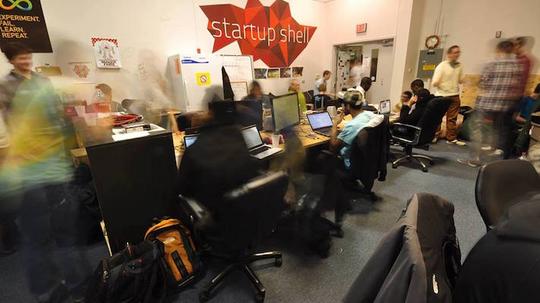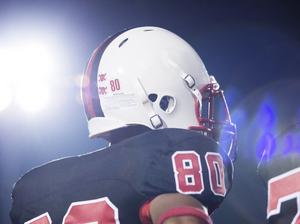

The University of Maryland's Startup Shell incubator is a conspicuous experiment in student-run startup incubation. Founded in 2012, the incubator has grown to include several dozen startups in its portfolio—and recently, Uber became interested enough in what might come out of the incubator to set aside $25,000 for it as part of a larger collaboration with UMd, including investor grants for student-built businesses. Notably, many of the startups focus on the issues that concern students or directly impact the field students are studying. We've picked out eight of the most intriguing and exciting startups to highlight here so that you can check out the types of innovation that UMd is fostering.
Mooki - One of the more advanced startups in the incubator's portfolio, Mooki bills iteself as a marketplace for professionals and employers looking to find and fill internships and jobs. It offers resume verification and job matching among other services. Most recently, the company won Baltimore Startup of the Year at the Tech Cocktail pitch competition.
Bgoti - Bgoti is a design startup with startups as its customer base. The company pitches itself as an designer "merging art, design & technology to produce stimulating environments." It's an expansive kind of decorating for offices. It offers similar services for bedrooms or any other kind of space that people want to make more conducive to creativity as well.
Cyber Skyline - Taking a cue from the ever-growing need for cybersecurity talent, Cyber Skyline works to boost student cybersecurity skills with competitive games, including the day-long Metropolis event. Turning cybersecurity education into games helps draw in students who might have been otherwise unlikely to get into the field, which the startup hopes will deepen the cybersecurity talent pool and giving students more career options when they graduate.
Repowered - Repowered applies technology to improve rehabilitation to help stroke victims and people with similar impairments. The company is working on a prototype to link a motion-controlled video game to the company's "VibroBand" feedback device and an EEG headset. The idea is that the video game can help the patient improve coordination and relearn perception and motion skills, even when they aren't at physical therapy. The data from the game combined with the EEG data can also be analyzed by doctors and physical therapists to come up with programs to help patients retrain their brains with the skills lost from a stroke or other brain injury.
M3D - After a hugely successful Kickstarter campaign that raised $3.4 million from almost 12,000 people, M3D is about to start shipping its Micro 3D-printer. The Micro is a smaller, cheaper 3D-printer than the standard designs and M3D envisions it for casual or educational use, bringing the possibilities of 3D-printing to a far larger audience than ever before. Since then M3D has graduated from the program.
VentureBoard - Currently in beta, this startup aims to help students build their own startups. Users create profiles to help them create teams and find the tools and resources they need to plan and launch their startups, with feedback from other users along the way. UMd is involved with VentureBoard, keeping an eye out for companies it may want to be involved with, and the eventual goal is to create similar setups at other schools.
MADE - College students sometimes lack financial literacy, a problem MADE is working to solve with peer-to-peer services that go beyond the standard teaching methods. It offers coaches and workshops (or as it terms them, "playshops") for students to figure out their finances and plan for the future.
SpotHuac - To avoid the dreaded moment when you see an unexpected line you have to stand in, SpotHuac is working on an app that will tell you what wait times are like at restaurants, event venues and other places and will crowdsource how long people are waiting in line so people can plan accordingly. The startup also plans to offer an enterprise-facing analytics platform so they can see and plan for crowds.


